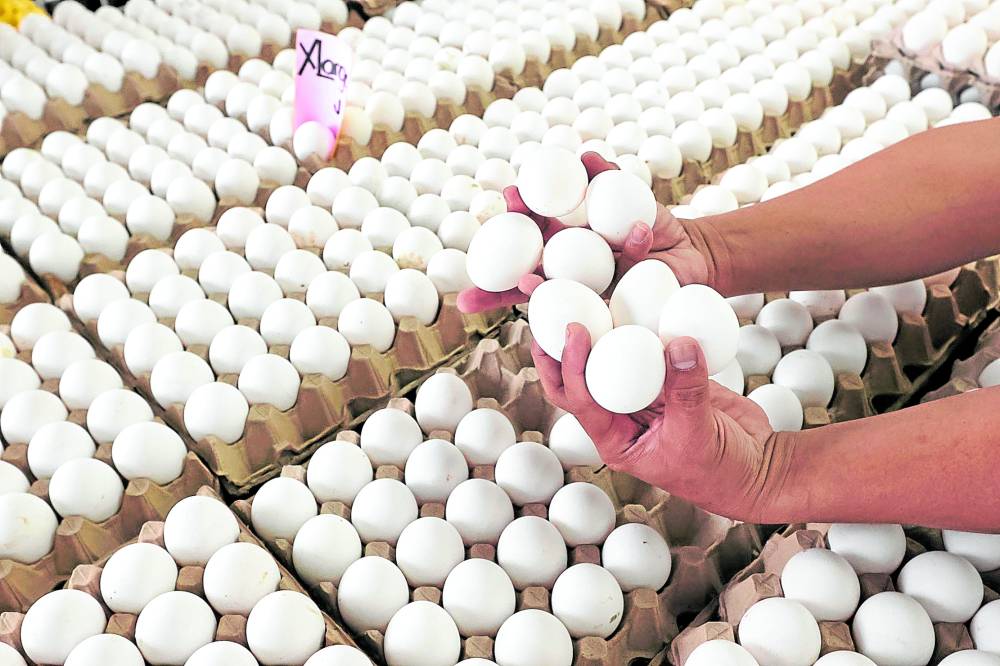Egg output low but supply stable

FOR CLOSE MONITORING The Department of Agriculture is reactivating a price monitoring committee and tapping several advisory groups in the poultry sector to focus on the demand-and-supply situation in the egg industry. —GRIG C. MONTEGRANDE
The supply of eggs remains “somewhat” stable with the United Broiler Raisers Association (Ubra) expecting demand for this key source of protein to eventually decline as Filipino families continue to grapple with the rising costs of other food commodities.
“Our projection is that egg supply will be somewhat stable despite a relatively low supply. We are on the low side of production [since the fourth quarter of last year because] many farmers have incurred losses,” Ubra chair Gregorio San Diego said.
He added that they expect demand to eventually decline as many consumers were cutting down on food expenses for more important things such as the payment of bills.
“They can endure hunger but they can’t afford to not pay their electricity and water bills or their supply might be cut off. They cannot cut down on their spending on house rent or transportation fares either,” San Diego said.
“That’s why ordinary families can scale down their budget on food because they can endure their hunger,” he added.
The reduction in demand for eggs, San Diego noted, could either drive prices down or have no effect at all.
In Metro Manila, medium-sized eggs sell for P7 to P9 each from the previous P5 to P6.50 apiece, according to the Department of Agriculture’s (DA) monitoring report as of Thursday.
According to San Diego, the cost of feed inputs alone accounts for almost P5 of an egg’s selling price.
Aside from higher production cost, local producers are greatly affected by the global outbreak of bird flu or avian influenza, he pointed out.
“In America, the price of egg has gone up significantly. Same with New Zealand. Nearly all countries are affected because of bird flu outbreaks worldwide,” San Diego said.
The DA earlier reconvened the Price and Volume Watch Committee and Advisory Groups for Livestock and Poultry to closely monitor the prices of poultry and livestock products such as meat and eggs nationwide.
The groups’ technical committee shall serve as the technical advisory body of the agriculture secretary in terms of the demand-and-supply situation of livestock commodities, meat and meat products prices, both local and international, and volume gaps.
The advisory groups, on the other hand, shall assist in overseeing livestock, poultry, eggs, meat and meat product prices, and other allied industries such as feeds, including demand and supply trends.